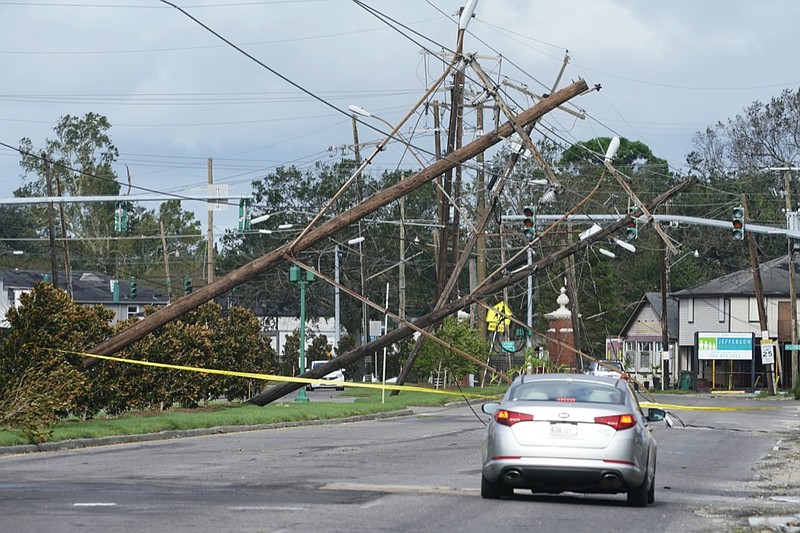Like a lot of people, Cherita Bloodwirth Adams spent much of Sunday glued to a television, getting updates on Hurricane Ida as it tore through the Gulf Coast.
Sixteen years to the day, Adams and her husband Mike were watching similar updates after evacuating their hometown of New Orleans before Katrina hit the area.
They chose to stay in Chattanooga, where they currently own and operate Blue Orleans restaurant.
But the rest of her family - father, four sisters and "a boatload of cousins and nephews" - are still living along the Gulf Coast, she said. In fact, three of her sisters and most of the rest of her family chose to ride out the storm this past weekend.
Sunday was a stressful day for Adams, she said.
"It definitely felt like deja vu," she said. "Yesterday it was difficult for me to even talk to anyone. People are checking in, but the reality is you can't say anything for sure until it's over. Your mind can go in a million different directions, and it wants to go in the worst direction.
"And, you are watching the news, and they are talking about all of these places where I know people who live there. I was just not the person to talk to yesterday."
Adams said people always want to ask why people stay in their homes during a hurricane, and she said there are several reasons. Two of her sisters, for example, had to stay because of jobs that required they stay, and the third has COVID-19 and is too sick to travel.
"Plus, evacuating is complicated, and it's expensive," she said. "You don't know for how long you will be gone."
(READ MORE: Chattanooga area to begin seeing Hurricane Ida impacts Monday night)
A place to go
Hillary Libby moved to New Orleans with her husband, Brad Steiner, almost a year and half ago. He had to stay there to try to keep the radio stations he operates there online, so she packed up their three large dogs and a cat and returned to Chattanooga to stay with her sister.
"I'm fortunate I had a place to come to," she said. "Not everybody has a place out of the past to go to, and some don't have the money to get a hotel for any length of time, or maybe they have pets. Finding a place that will allow them is tough."
Leaving her husband was not easy, and with power and most cell phone services out, Sunday and Monday morning were tough.
"Not having communication is difficult," she said. "We are spoiled with phones because we expect to text or Facetime when we want to. All of that is out the window. No internet, no power and no phones is tough."
Work to do
Kenyatta Ashford is from New Orleans and has family there still. He moved to Tennessee in 1999 to attend college and owns Neutral Ground restaurant. His sister, Hashawn Ashford chose to evacuate to Chattanooga while other members of his family headed west to Houston.
"I had two brothers who stayed. One just decided to, and the other is a fireman and had to stay," he said.
Ashford said he has several family members who work in the school systems in and around New Orleans and another who is a social worker.
"They will have a lot of work to do when they get back."
Adams said something like Katrina or Ida can be devastating on so many levels. There is the stress and potential life-threatening dangers of the actual event, and then there is the recovery and rebuilding process and the expense.
"It's an ongoing nightmare, and we don't even know what the nightmare looks like yet," she said.
"It's going to be a huge mess and probably the most disheartening thing for me is that many folks did not have insurance after Katrina. The rates went way up."
Contact Barry Courter at bcourter@timesfreepress.com or 423-757-6354.
